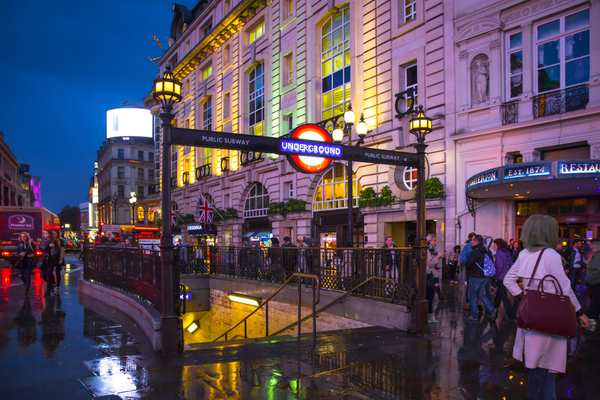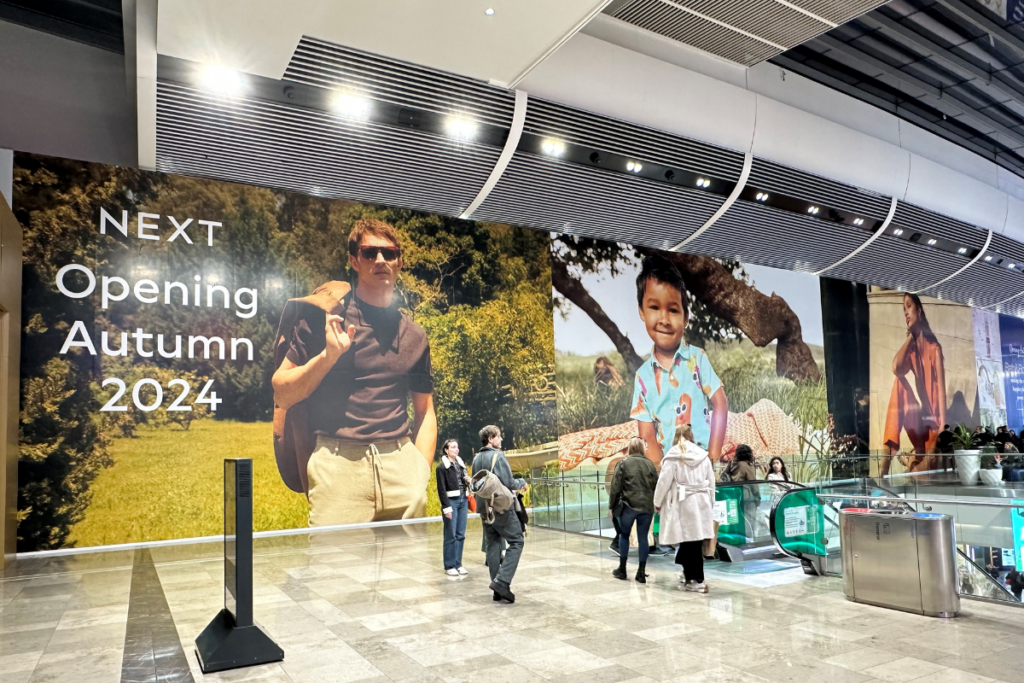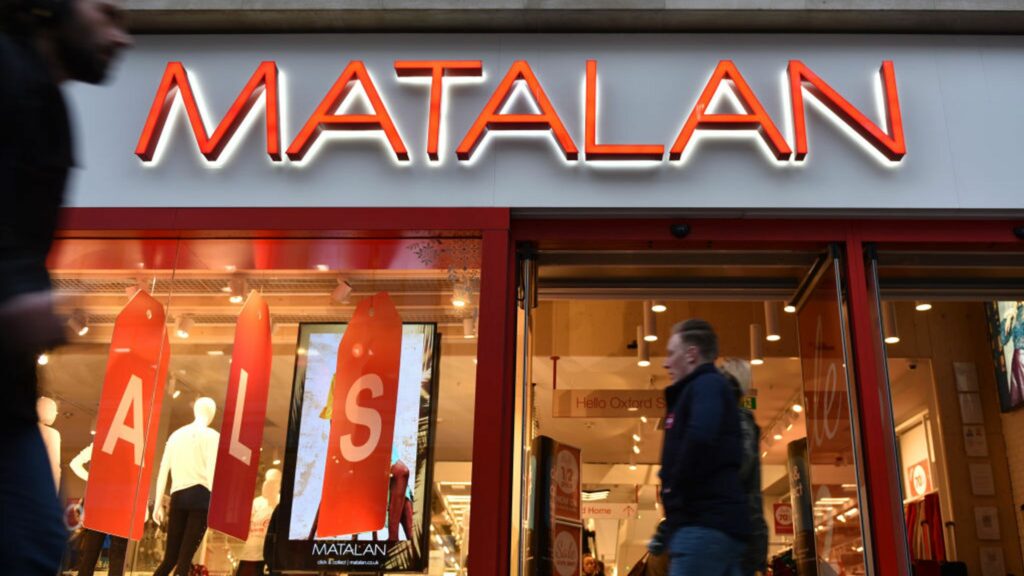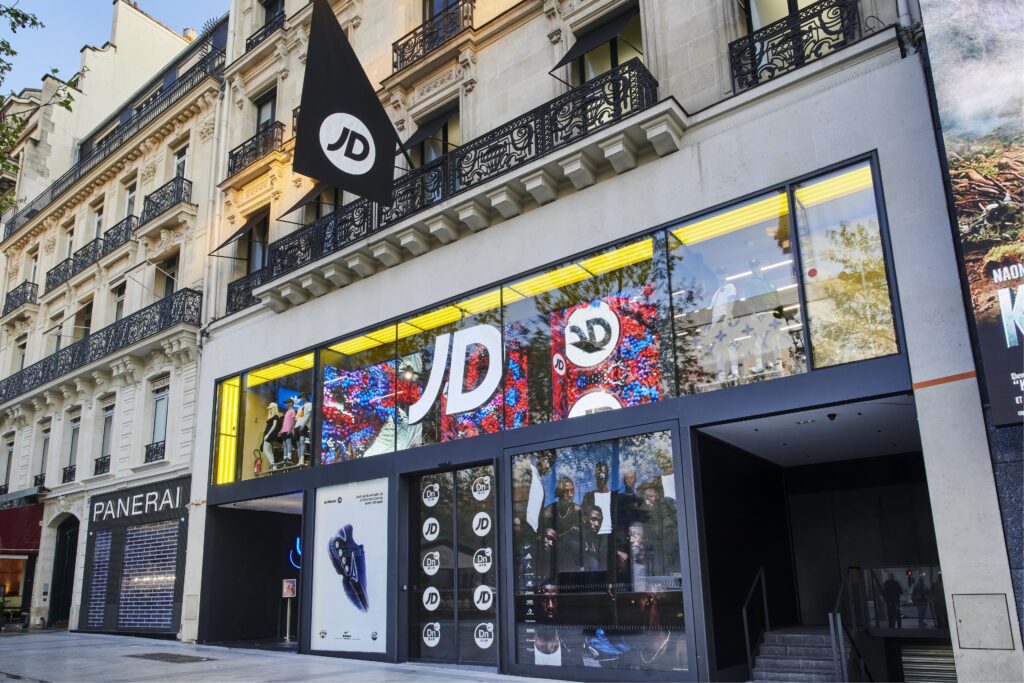As Covid restrictions come to an end, retailers big and small across the UK are starting the path to recovery.
Since Plan B restrictions have been lifted, there are signs of footfall improving on the high street. Shopper numbers strengthened to 22.4% behind 2019 levels in the latter two weeks in January from 28.9% in the first two weeks.
But for retailers in London’s West End there could be a spanner in the works in the form of the longest tube strike in history.
Since January 7, The RMT union’s strike action has been taking place every Friday and Saturday from 8.30pm until 8am the following day on the Central and Victoria lines over new rosters for Night Tube staff and are set to last 6 months.
The industrial action is adding further woe to commuters in the capital, as the Northern line’s Bank branch is already closed for upgrade work until mid-May 2022.
At a time when retailers in areas such as Oxford Street and Regent Street would hope that restriction-free consumers will spend their weekend indulging in retail therapy, its increasingly difficult to actually get to these prime locations.
Although figures from the New West End Company showed that weekend footfall was up 11% week on week last weekend, this could have been higher if it were not for the strikes.
The chief executive of New West End Company Jayce Tyrell, which represents traders on Oxford Street and Regent Street, has pleaded for the RMT to scrap the strikes.
“The proposed six month strike action threatens the West End’s night-time economy and retail at a critical point”
“Following another challenging festive period for retail and hospitality businesses we hope that the start of 2022 will bring optimism and footfall, however the new year joy has been depleted by the threat of even more disruptions caused by the planned Night Tube strikes,” Tyrell tells Retail Gazette.
“The proposed six month strike action threatens the West End’s night-time economy and retailers at a critical point when many businesses will be looking to recover from the impact of the pandemic. We strongly encourage RMT to call off these strikes in order to give viable retailers in the capital the best possible chance of survival.”
Brian Bickell, chief executive of developer Shaftesbury, explains that the phased return of office workers continues to impact the footfall levels during the weekdays meaning weekend trade is even more vital for their occupiers in the West End.
“While we’ve seen a strong recovery in weekend footfall, it’s still extremely frustrating that these tube strikes continue to cause disruption, creating yet another roadblock in the recovery of retail and hospitality businesses and the capital’s night-time economy,” he says.

He tells Retail Gazette that Shaftesbury, which owns Carnaby Street and Seven Dials, is calling on the London Underground and RMT to revisit their negotiations and find a resolution to this dispute, as these strikes are “not only inconveniencing passengers but hampering West End businesses at a critical time in our city’s recovery.”
However, the RMT has warns strikes could be extended to other lines. Paul Gibbens, a marketing and property specialist, says this could cause significant damage to retailers as shoppers could decide to go to out-of-town shopping centres instead.
“The wider this strike spreads the greater the risk of disruption”
“The wider this strike spreads the greater the risk of disruption,” adds Tabor.
“Any traveller who fears their journey could be delayed is likely to stay at home, not least with concerns still high among some about the spread of Omicron.”
Dash Tabor, co-founder of the tech start-up TUBR, an app that predicts crowds on the London Underground and guides users along the least congested routes, says that while some theatre goers and those on a night out would like use taxi services such as Uber and Bolt to the West End, many “aren’t as likely to travel to this area for shopping and this could have a big impact on retailers in the area.”
However, she says there are measures retailers can take to ensure in-store sales don’t drastically drop off.
Tabor says “This could mean changing their opening hours to when more people are likely to be in the area and offer new services or promotions.
“For example, if people are more likely to travel in the evenings and afternoons for a [theatre] show then market shopping “happy hours” before the show and offer to hold their purchases to pick up after they are finished. They could even offer a “meet outside your show” service for an additional fee.”
Gibbens echoes Tabor’s suggestions, saying longer opening hours, more discounts, especially on days around the strikes, and promoting services that can’t be offered online would also help retailers push shoppers to visit stores in the area.
“From night buses, to electric scooters, cycling, walking – retailers should be highlighting alternative routes for customers, also highlighting quiet times on the transport system so customers can get into the retail space without too much hassle,” explains Gibbens.
TfL general manager for London Overground Rory O’Neill says: “We will continue to do all we can to keep operating a near to normal service but advise everyone to check our website and the TfL Go app before they travel as further services may be affected at short notice by staff absences.”
While there seems to be no end in site to these strikes, retailers in the West End undoubtedly have a difficult few months ahead. Retailers will be hoping that shoppers are prepared to go that extra mile to get to the UK’s premier high streets.
Click here to sign up to Retail Gazette‘s free daily email newsletter

















